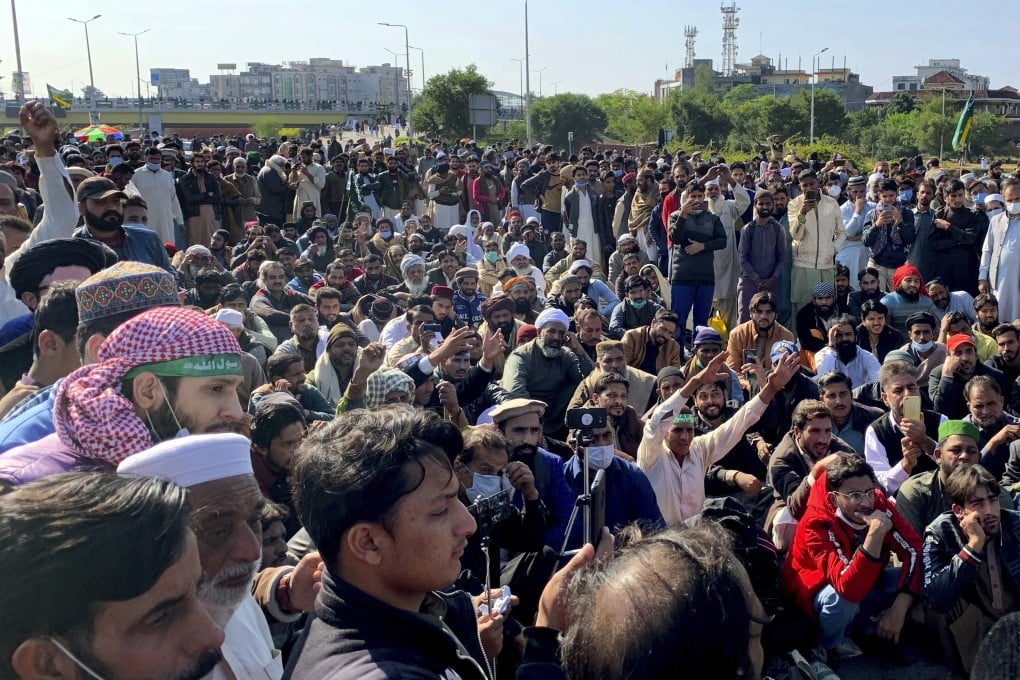Advertisement
Do Pakistan’s anti-France protests signal rise of Islamist mob rule?
- The ultra-conservative Tehreek-e-Labaik Pakistan has increasingly put pressure on Islamabad, this time seemingly shaping its foreign policy against France
- Analysts say the government’s ’appeasement’ of the TLP has given it political space to have an outsize influence on policy
Reading Time:4 minutes
Why you can trust SCMP
0

When phone and internet services were abruptly suspended in Pakistan’s capital, Islamabad, on Sunday, residents knew exactly what had happened: the Tehreek-e-Labaik Pakistan (TLP) was back on the streets.
This time, the uber-conservative Islamist group, which is comprised largely of Barelvi Muslims, a sect of Sunni Islam, was raging against all things French – the president, the ambassador and French products – as it built on angry protests around the world since French President Emmanuel Macron defended the right to criticise Islam as part of freedom of speech.
But the Pakistan government’s subsequent reactions showed how the TLP has gained in strength and influence since it became a household name in 2017 after it staged a three-week sit-in blocking routes to the capital over a minor change to a government oath that they claimed was “blasphemous”. The protest ended when their demand was accepted: the resignation of Pakistan’s federal law minister.
Subsequently, in the 2018 elections, it fielded candidates for the first time and managed to garner electoral seats. That year, they paralysed the country following the acquittal of Christian woman Asia Bibi, who had been accused of disrespecting the Prophet Mohammed.
This week, as TLP supporters called for the “beheading of blasphemers”, a dangerous narrative in a country that has among the harshest blasphemy laws in the world, subjecting a violator to a death sentence, Islamabad cut off phone and internet services. Parts of the capital and adjoining cities were disconnected for two days, and the authorities blocked the entry of up to 5,000 protesters marching from Rawalpindi to Islamabad.
Advertisement